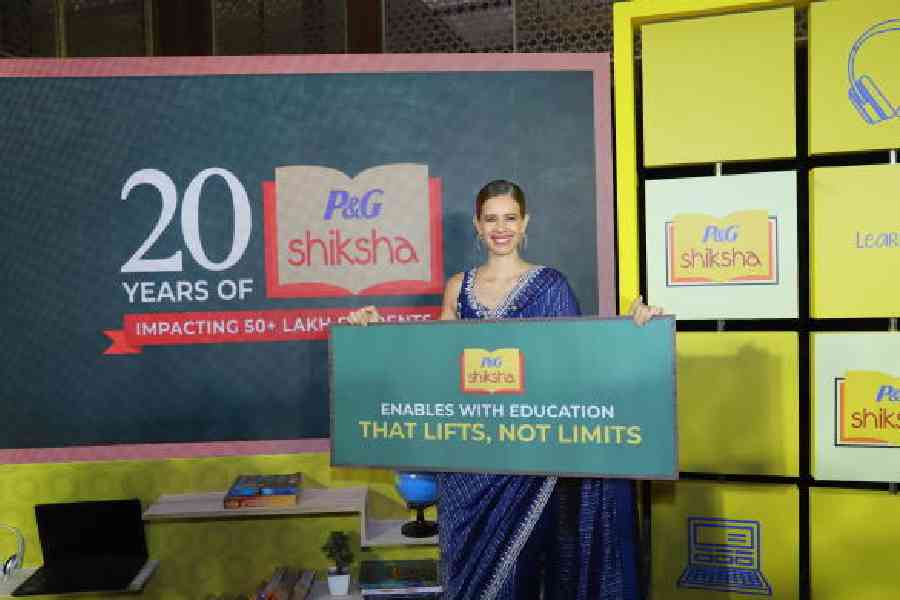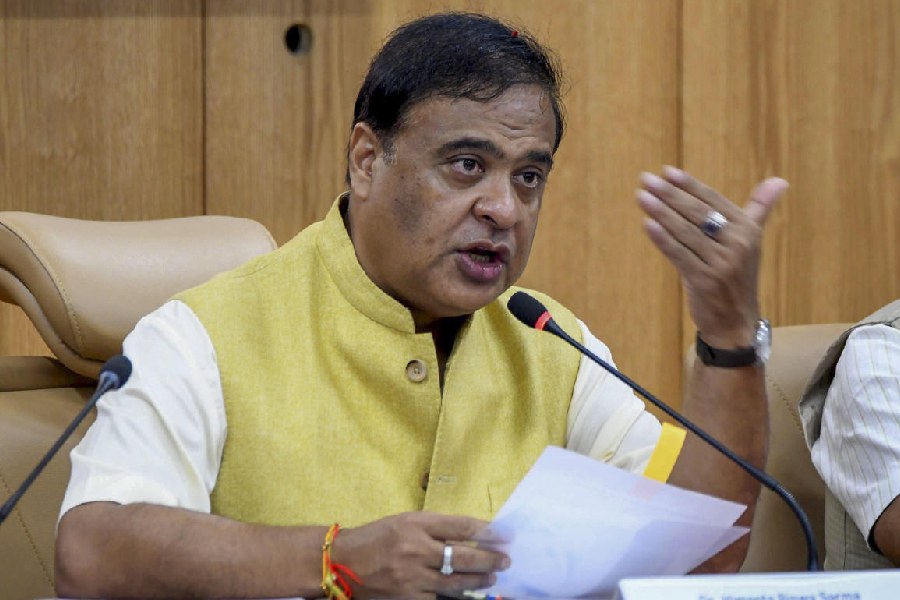Actress Kalki Koechlin is an ardent believer in the power of education, both formal and informal. As P&G Shiksha hits a milestone of 20 years, the Dev.D actor returns to pledge her support as an advocate and as a parent. In a t2 chat, she talks about how the formal set-up of education has been a game-changer for her, her one-on-one chat with her daughter and how she breaks stereotypes with storytelling.
Education, a game-changer
Education, I think, is extremely important. For me, it’s been a game-changer because in many ways, my school became both emotional and physical support. I was in boarding school from the age of six — my parents were travellers and were busy working — and I don’t think I would have received the same attention at home that I got at school. Having a dorm parent, someone who knew what was going on in my personal life, along with teachers who took an interest in my skills, was really wonderful.
I was also lucky to experience a very holistic approach to education. We did sports, went trekking, and on weekends we learned practical things like camping skills — how to pitch a tent, how to make a fire — real survival skills. It felt amazing to have that kind of education, and it prepared me not just for work, but for life.
If I get a (car tyre) puncture, or need to change a lightbulb at home, I can handle it. These are life skills. Learning to cook for yourself is a life skill too. It’s not just about academics. So yes, I think education is incredibly important.
Not a campaign, a movement
I think what P&G is really great at is identifying the most urgent problems of the moment, and right now, the issue of the learning gap is massive. As I mentioned earlier, more than 50 per cent of children in Class V cannot read Class II-level text. That’s not just a statistic — it represents millions of kids being left behind, not because they lack intelligence, but because they haven’t been understood or supported. P&G is incredibly good at recognising these challenges and then building the right infrastructure, finding the right people, and creating the support systems needed to address them. And what gives me hope is that they won’t stop here —they’ll continue evolving, finding new areas to focus on, and deepening their impact.
For me, storytelling has always been a way to challenge stereotypes, question norms, and give voice to the unspoken. Whether it’s through the roles I choose or the causes I support, I’ve always been drawn to spaces that promote inclusivity, empathy, and equity. That’s why my association with P&G Shiksha feels so natural. This isn’t just a campaign —it’s a movement to shift how we view children and learning. By addressing something as subtle yet powerful as the labels we put on children — calling them ‘slow’ or a ‘kaccha nimbu’ — we’re starting a much-needed conversation around self-esteem, potential, and the invisible barriers that can shape a child’s future. P&G Shiksha isn’t just handing out resources — it’s helping rewrite narratives. That deeply aligns with what I strive to do, both as an artiste and as a mother.
Being part of this initiative allows me to use my voice and platform in a way that feels both meaningful and urgent. Because if we can change the way we talk to children — if we can replace judgment with belief — we’re not just closing learning gaps. We’re opening doors to futures that might have otherwise remained closed.
Teaching beyond school
I think it really happens when you take an interest in your child’s life. There are so many important lessons that aren’t taught in school — like how to navigate friendships, how to respond when someone says something unkind. I remember once my daughter came home and said: “Someone called me a smelly rat.” And, of course, my first instinct was to protect her — to hug her, to rush in and fix it. But I knew I had to hold back. I hugged her and said: “Come here, let me check… nope, you smell like honey. I’m pretty sure you smell like honey.”
Then I sat her down and said: “You know, you get to choose who your friends are. Not everyone has to be your friend. Even I have people I work with or spend time around, but they’re not all my friends — and that’s okay. You can choose who you want close to you.” That, for me, is also a form of education — teaching children they have the right to set boundaries. And especially as girls, I think we often grow up not learning how to say no. That’s something I had to learn as an adult, and now I try to pass that lesson on to her.
Upcoming projects
I have a series coming out on Amazon Mini called Bhay. It’s a horror show based on the real-life story of Gaurav Tiwari, who was associated with the Indian Paranormal Society. He used to investigate places that were allegedly haunted, and in 2017, he passed away under mysterious circumstances. The story is centered around his life and the events surrounding it.










